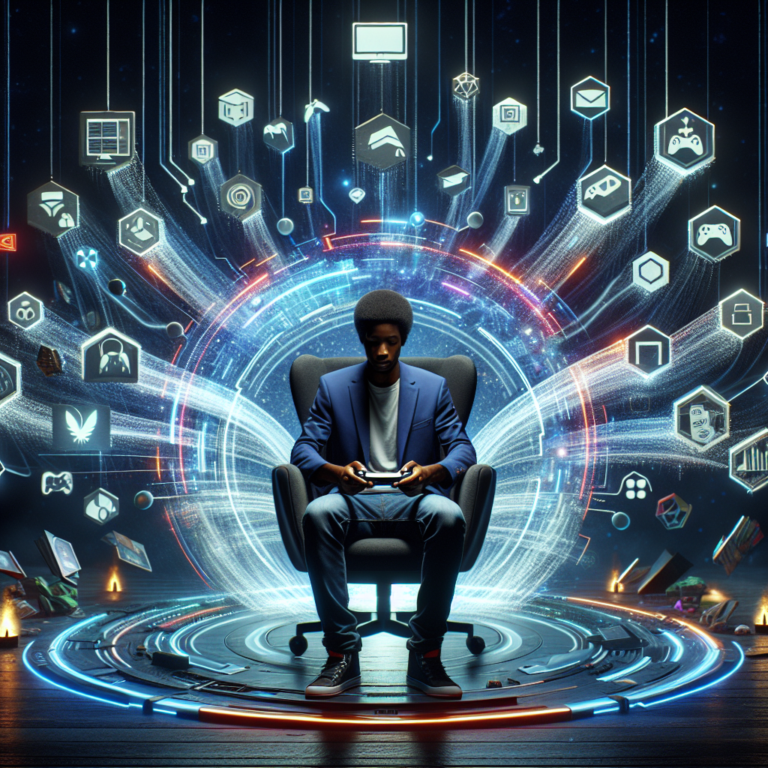The gaming industry has undergone a profound transformation over the past two decades. From cartridge-based consoles to cloud gaming, technological advancements continue to reshape how players access and experience their favorite games. At the forefront of this evolution is the concept of digital titles—games available for download rather than physical purchase. This shift is not merely a change in distribution; it represents a revolution in ownership models, accessibility, and player experience.
The Rise of Digital Titles
The transition to digital titles began in earnest with the advent of broadband internet and the proliferation of online marketplaces. Platforms like Steam, PlayStation Network, and Xbox Live allowed players to purchase and download games directly onto their devices. This model offered convenience, eliminating the need for physical media, and allowed for immediate play—bypassing the hassle of trips to retail stores.
As bandwidth increased and the acceptance of digital ownership grew, many developers began to release games exclusively in digital formats. Major franchises have emerged from this model, supported by indie developers who benefit from lower distribution costs. Consequently, the gaming landscape is now populated with a plethora of digital-only titles, ensuring players have an ever-expanding library at their fingertips.
Redefining Ownership
One of the most significant implications of digital titles is the redefinition of ownership. Traditionally, purchasing a physical game meant owning a tangible product, with clear rights to resell or trade. However, digital titles typically operate on a licensing model, where players purchase the right to access the game rather than owning it outright. This shift raises questions about the limitations of digital ownership:
-
Access vs. Ownership: Players may find themselves in a position where they "own" a game they can no longer access if the digital storefront ceases operations or if licensing agreements expire. This scenario underscores the importance of understanding the nuances of digital ownership.
-
Game Preservation: Digital titles can present challenges for preservation, as some games may disappear from digital stores over time. While physical copies can last for decades, their digital counterparts are more susceptible to removal from platforms, leading to potential gaps in gaming history.
- Consumer Rights: The shift to digital also opens discussions about consumer rights and protections. Advocacy groups are pushing for clearer terms regarding digital purchases, driving efforts to ensure players’ rights, especially concerning refunds and account bans.
Enhanced Accessibility
Despite the complexities of ownership, digital titles have enhanced accessibility in several key ways:
-
Global Reach: Digital distribution allows developers to reach a global audience without the constraints of physical shipping and regional restrictions. Players from around the world can access games almost simultaneously, fostering a more inclusive gaming environment.
-
Affordability: Digital sales and bundles often lead to lower prices and promotions unavailable for physical copies. This affordability makes gaming more accessible to a wider demographic, allowing newcomers to join the community.
- Indie Game Boom: Digital platforms have democratized game development. Independent developers can launch their games without the financial burdens associated with physical production, leading to innovative and diverse gaming experiences. The indie game boom has introduced unique narratives and gameplay styles, enriching the overall gaming landscape.
The Future of Digital Gaming
As technology continues to evolve, the future of digital titles is poised to witness further innovations. Emerging trends include the rise of cloud gaming services like Google Stadia and Xbox Cloud Gaming, which remove the need for high-end hardware by allowing players to stream games directly to their devices. This model could potentially redefine how we think about gaming ownership, making it more about access and less about ownership.
Blockchain technology and NFTs (Non-Fungible Tokens) have also entered the conversation, offering the promise of true ownership through verified digital assets. Although still in their infancy, such technologies could revolutionize the way players own and trade digital titles, merging the concepts of ownership and digital convenience.
Conclusion
Digital titles have revolutionized the gaming industry, transforming how players access, own, and engage with games. While challenges remain—especially surrounding ownership rights and game preservation—the benefits of digital distribution and accessibility are undeniable. As the landscape continues to evolve, players must stay informed about the implications of digital ownership, while developers and advocates work toward creating an ecosystem that respects consumer rights and preserves the rich history of gaming. Looking ahead, the future promises unprecedented opportunities for innovation, engagement, and community-building in the digital gaming realm.


